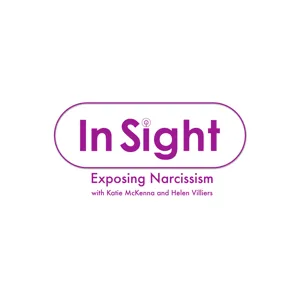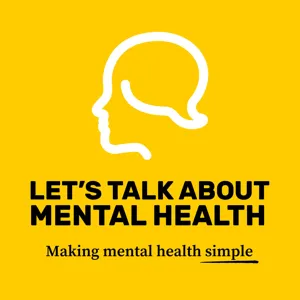Podcast Summary
Unmet expectations from past can impact present parenting: Being aware of past unmet expectations and striving for a present-moment approach can prevent unnecessary pressure and hindrance to joyful parenting experiences
Unrealistic expectations, rooted in past experiences, can negatively impact our present actions and relationships, particularly in the context of parenting. Katie and Helen shared their experiences of setting high expectations for home projects, which led to frustration and stress in the past. They acknowledged how these past experiences might stem from childhood wounds, where perfection was expected and imperfection led to feelings of rejection or shame. As adults, these unmet expectations can unconsciously be projected onto our children, creating unnecessary pressure and potentially hindering the joy of shared experiences. It's essential to be aware of these patterns and strive for a more flexible, present-moment approach to parenting and life in general. Instead of focusing on perfection, cherish the memories and moments created with our loved ones.
Recognizing the Impact of Our Past on Parenting: Be aware of how our past experiences shape our parenting expectations and allow children to learn from their mistakes instead of projecting our own experiences onto them.
As parents, we must be mindful of the expectations we set for our children. It's important to recognize that our own experiences and high expectations for ourselves as children can unconsciously influence how we parent. We may inadvertently project our abilities and emotional responses onto our kids, limiting their autonomy and creating an unrealistic standard for them to live up to. Instead, we should strive to understand our own past traumas and allow our children to experience their own emotional responses to situations, enabling them to grow and learn from their mistakes. By acknowledging our own boundaries and past experiences, we can create a healthier and more balanced parent-child dynamic.
Recognition from a stranger: Small actions can lead to profound impacts on people's lives, and everyone's story matters.
Small interactions can have a profound impact on people's lives. The speaker shared a personal experience at McDonald's where she was recognized by a woman who credited her for saving her life. The woman's emotional reaction and her son's gratitude showed that their actions had ripple effects. This encounter reminded the speaker of the importance of their work in helping people recognize and understand issues like emotional abuse and narcissism. The podcast they host provides a platform for open discussions and validates the experiences of those who have been affected. This interaction served as a reminder that even small actions can lead to significant changes and that everyone's story matters.
Understanding and Addressing Emotional Abuse: Recognizing emotional abuse patterns and seeking supportive relationships can lead to personal growth and healthier relationships.
Recognizing and addressing emotional abuse is crucial for personal growth and healthy relationships. The podcast discussed how the cycle of abuse can be passed down from generation to generation, and how important it is for individuals to acknowledge and confront their past experiences. The podcast also emphasized the importance of having supportive relationships and the power of validation and acknowledgement. The listener shared their personal struggle in their marriage, where they recognized the pattern of emotional abuse and the impact it had on their self-worth. By acknowledging and addressing these patterns, individuals can break the cycle and create healthier relationships for themselves and future generations. The podcast serves as a valuable resource for those seeking to understand and overcome emotional abuse.
Perceived reality vs personal experience in relationships: Misalignment between partner's actions and words can lead to feelings of invalidation and mistrust, impacting relationship quality and personal well-being.
The disconnect between perceived reality and personal experience in a relationship can lead to feelings of invalidation and mistrust. The speaker shares an experience of her husband's behavior during her postpartum period, where his actions and words did not align with her own feelings and needs. This discrepancy, which occurred on a larger scale with his handling of his paternity leave and smaller instances of dishonesty, left the speaker feeling unsupported and alone in her struggle with postpartum depression and anxiety. The speaker's past experiences with toxic relationships and her ongoing healing journey have helped her recognize and confront these patterns in her current relationship. Despite her husband's good qualities and past support, the lack of empathy and validation persists, leaving the speaker questioning the reality of their relationship and her own feelings.
Understanding Gaslighting: Katie's Marriage Woes: Gaslighting is a form of emotional abuse causing self-doubt and anxiety, not a reflection of one's own shortcomings. Recognizing it and trusting oneself is key to healing.
The experiences Katie is going through in her marriage are not a result of her own shortcomings, but rather a form of emotional abuse called gaslighting. Gaslighting is a manipulative behavior designed to create psychological confusion and doubt of self, leading to feelings of worthlessness, anxiety, and depression. Katie's inner critic and fear of being like her mother are valid responses to the gaslighting, but she is not the problem. Instead, she is being controlled and manipulated by her husband's gaslighting and triangulation tactics. It's important for Katie to recognize that she is not crazy, and that her feelings are valid. The first step towards healing is acknowledging the abuse and the impact it has had on her self-worth and trust in herself. Trusting herself and quieting her inner critic will be a process, but it's essential to remember that she deserves to be treated with respect and kindness.
Understanding the Impact of Narcissistic Parents on Relationships: Embrace relationship autonomy, seek help for unhealthy patterns, and prioritize emotional intimacy and equality in relationships to protect against narcissistic abuse.
Recognizing the autonomy we have in our relationships can be terrifying, but it's important to acknowledge and embrace it to protect ourselves from repeating patterns of abuse. Narcissistic parents can set the stage for unhealthy relationships in adulthood by teaching us that abuse is love. It's essential to understand that it's not our fault and to seek help when needed. The arrival of a child can be a catalyst for change, highlighting the importance of emotional intimacy and equality in relationships. Growing up with a narcissistic parent can suppress our ability to identify our needs, but having a child forces us to ask for help and rely on our partners, which can lead to postpartum depression and anxiety. Compassion and acknowledgement are crucial in breaking these cycles.
The experience of having a baby can reveal unmet needs and societal expectations: Recognize manipulative behaviors, seek support when needed, and remember that vulnerability can lead to change, not just with a baby but in any situation
The experience of having a baby or any significant life event can serve as a catalyst for change, revealing the absence of support and love that we deserve from our partners and loved ones. This vulnerability, coupled with societal expectations, can highlight the unfairness and injustice of the situation. Promises made, or "future faking," can be a form of manipulation and gaslighting, invalidating our feelings and experiences. It's essential to recognize when these behaviors are intentional and harmful, and to seek support and resources when needed. Remember, the catalyst for change doesn't have to be a baby; it can be any situation where we are vulnerable and in need of support.
Manipulation and Control in Relationships: Understanding Gaslighting: Gaslighting is a harmful behavior where a partner denies or dismisses another's feelings, experiences, or reality to maintain control, leading to emotional suppression and self-doubt. Recognize and challenge this behavior to maintain self-respect and emotional health.
Gaslighting is a manipulative behavior where a partner denies or dismisses another person's feelings, experiences, or reality to maintain control and superiority in a relationship. This can lead to emotional suppression and self-doubt for the victim. The gaslighter may also use blame and deflection to avoid taking accountability for their own mistakes and make the victim feel responsible instead. This behavior is particularly harmful when it comes to sensitive issues like breastfeeding struggles or simple mistakes. It's important to recognize and challenge gaslighting behavior to maintain self-respect and emotional health.
Recognizing the signs of gaslighting: Gaslighting involves manipulating someone's perception, often stemming from toxic childhood experiences, leading to feelings of insanity and self-doubt. Seek support to rebuild trust and autonomy.
Gaslighting goes beyond simple disagreements and involves manipulating someone's perception and making them doubt their own reality. It often stems from childhood experiences in toxic environments where self-trust and autonomy are undermined. When gaslighting occurs in multiple relationships, it can create a cycle of doubt and confusion, making it difficult for the person experiencing it to trust their own judgment. Gaslighting is a form of emotional abuse that can lead to feelings of insanity and self-doubt. It's essential to recognize the signs of gaslighting and seek support from healthy relationships and professionals to rebuild trust in oneself and regain a sense of autonomy.
Recognizing and Breaking Free from Toxic Relationships: Understand toxic patterns from past experiences, identify manipulative tactics like love bombing, seek therapy and education, remember personal responsibility, and confront situations for healthier relationships.
Toxic relationships can often resemble past harmful experiences, such as unmet needs or invalidated feelings, which can be unintentionally perpetuated in current relationships. Love bombing, a manipulative tactic used by narcissists, can feel intoxicating but ultimately leads to emotional abuse. It's essential to recognize these patterns and take responsibility for personal growth and healing. Through therapy and education, individuals can learn to identify toxic behaviors, understand their impact, and make healthier choices. It's crucial to remember that we're only responsible for our own behavior and feelings, and we don't need to fear rejection or use toxic behaviors to cope. By confronting situations and seeking support, we can break free from these patterns and build healthier, more fulfilling relationships.
Dealing with conflict through silence is damaging: Silent treatment is ineffective, potentially abusive, and rooted in contempt. Create a safe space for open communication to avoid emotional abandonment and personal growth hindrance.
Using the silent treatment or stonewalling as a means of dealing with conflict in relationships is not only ineffective but also damaging and potentially abusive. This behavior, rooted in contempt and superiority, can lead to a pattern of emotional abandonment and survival responses that may have worked in childhood but are detrimental as an adult. It's crucial to recognize these patterns, create a safe space for open communication, and unlearn these behaviors in a healthy relationship. The consequences of not addressing these issues can lead to further harm and hinder personal growth.
Recognizing and addressing triangulation in relationships: Triangulation is a manipulative behavior that can lead to isolation, discord, and confusion. It's important to confront the person involved to challenge the manipulation and strengthen relationships.
Triangulation is a manipulative behavior where one person tries to split relationships by weaponizing one person against another. This can lead to isolation, discord, and a sense of confusion. Triangulation is often used to control relationships and leave people feeling back-footed and unsure of how to address the situation. It's important to recognize this destructive behavior and confront the person involved to challenge it. This requires getting comfortable with confrontation and being authentic in relationships. By addressing triangulation directly, the manipulation is exposed, and relationships can be strengthened. In the context of the discussion, it was noted that the ex-servant's husband was exhibiting triangulation by involving the child in his attempts to control the relationship with his former servant. This behavior was highlighted as a way to demonstrate the insidious nature of triangulation and the importance of addressing it head-on.
Triangulation and manipulation in family dynamics can harm children: Manipulating and triangulating in family dynamics can damage relationships and teach harmful behaviors, particularly for children.
Triangulation and manipulation in family dynamics can lead to harmful consequences for all involved, particularly children. The speaker's experience of her parents' falsified stories and triangulation illustrates how siblings can be kept apart and manipulated. In the discussed situation, the husband's behavior towards his daughter and the listener is a form of triangulation and manipulation, where he guilt-trips her and rewards her for treating the listener poorly. This behavior can have detrimental effects on the daughter's relationship with both parents and can set a pattern for future relationships. The listener's observation that her husband's relationship with their daughter has improved but is also marked by guilt-tripping and manipulation is a cause for concern. The husband's actions are not only damaging the listener's relationship with her daughter but also teaching the daughter to prioritize her father's needs over her mother's and to manipulate in return. This dynamic can perpetuate a cycle of harmful behavior and can have long-term consequences for the daughter's relationships and emotional well-being.
Recognizing and Addressing Abusive Behavior in Relationships: Supporting a partner goes beyond meeting their needs, it includes standing up against abuse and promoting healthy communication and boundaries. Mothers play a crucial role in teaching their daughters about healthy relationships and self-advocacy. Open communication and collaboration are essential in addressing challenges, not avoiding conflict and criticism.
Enabling abusive behavior in a relationship, whether consciously or unconsciously, can have detrimental effects on both partners and future generations. It's crucial to recognize that supporting a partner goes beyond just meeting their needs and includes actively standing up against abuse and promoting healthy communication and boundaries. The speaker emphasizes the importance of the mother's role in teaching her daughter about healthy relationships and self-advocacy. Additionally, the speaker challenges the notion that support equates to avoiding conflict and criticism, and encourages open communication and collaboration in addressing challenges. Ultimately, protecting oneself and one's child from abuse involves recognizing and addressing unhealthy patterns and setting boundaries.
Financial control in relationships can lead to power imbalance and shame for stay-at-home partners: Recognize financial abuse, promote financial independence, and ensure equal access to resources and decision-making for both partners in a relationship.
Financial control in a relationship can lead to power imbalance and abuse, particularly when one partner stays at home to care for the children. This can result in feelings of shame, isolation, and powerlessness for the stay-at-home partner. It's crucial to recognize these signs and understand that financial independence is essential for a healthy and equal partnership. Shame is a common emotion experienced in such situations, and acknowledging and addressing it is an essential part of healing. Financial abuse is often overlooked, but it can be as damaging as physical or emotional abuse. Always remember that both partners should have equal access to resources and financial decision-making in a relationship.
Authenticity and self-worth in relationships: Being true to oneself is crucial in relationships. Recognize that self-worth is not defined by external factors, and both parties deserve love, respect, and validation. Address toxic patterns and prioritize self-love to navigate relationships with empathy and hope.
Authenticity and self-worth are crucial in relationships. The influencer in this conversation acknowledged the importance of both planned and off-the-cuff content, but the most relatable and connecting moments come from being true to oneself. Shame and fear of judgment can keep individuals in toxic relationships, but it's essential to recognize that one's worth is not defined by external factors. Both parties in a relationship deserve to be treated with love, respect, and validation. In the context of the conversation, Katie was encouraged to prioritize her self-worth and consider leaving a marriage that did not meet her needs. The conversation also touched on the importance of addressing toxic patterns and breaking the cycle of unrealistic expectations. Ultimately, the conversation emphasized the importance of empathy, hope, and self-love in navigating relationships.
Navigating Difficult Situations in Relationships: Effective communication and understanding are crucial for handling anxiety, asking for autonomy, and dealing with rejection in relationships. Creating a safe space for open dialogue and prioritizing needs fosters healthy and strong connections.
Effective communication and understanding are key to navigating difficult situations, such as asking for autonomy and handling rejection in relationships. The speaker shares her personal experience of feeling anxious about staying in someone else's house but recognizes the importance of prioritizing her needs while also considering the needs of her partner. She emphasizes that asking for a need to be met does not equate to rejection but rather a necessary step for maintaining a healthy and strong relationship. The speaker also highlights the importance of creating a safe and supportive environment where asking for help or taking a break is encouraged without guilt or punishment. Overall, the discussion underscores the importance of open and compassionate communication in managing challenges and building resilient relationships.






